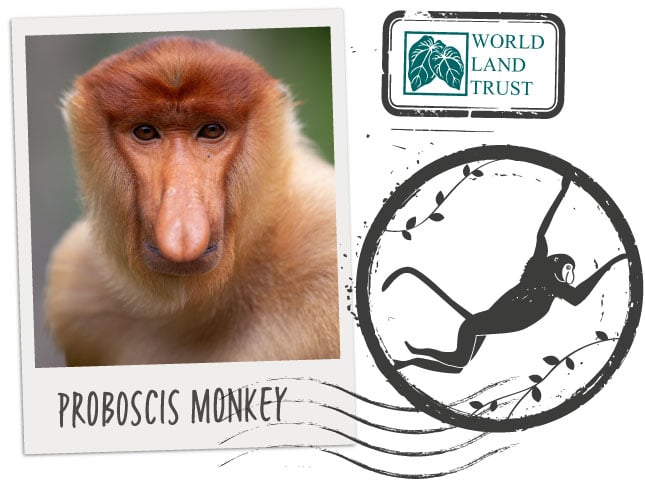Who are they?
Founded in 1989, World Land Trust (WLT) was one of the first organisations created to fund land purchase for the purpose of conservation, helping empower local partners and their communities to save the critically threatened habitats for wildlife around the world.
You may recognise some of World Land Trust’s famous patrons, including Sir David Attenborough, Steve Backshall MBE, David Gower OBE, and Chris Packham CBE!

What do they do?
Through their conservation work, World Land Trust (WLT) has saved land and species by funding:
- The conservation of over 6 million acres of land around the world.
- The planting of more than 7 million trees.
- The protection of 11,600+ species.
WLT’s Carbon Balanced Programme supports businesses who measure and reduce their carbon footprint to offset their unavoidable emissions through the protection of habitats.
By funding Keepers of the Wild, WLT champions frontline conservation by helping their partner organisations employ local people as rangers to:
- Police and deter illegal activities (e.g. hunting)
- Monitor species
- Assist researchers
- Create and maintain infrastructure (public services)
- Guide visitors
- Work with local communities.
WLT has worked with conservation partner HUTAN for many years to safeguard land along the Kinabatangan River in Malaysian Borneo for the incredible biodiversity there, including the Proboscis Monkey.
Proboscis monkey
The proboscis monkey’s partially webbed feet, larger-than-average nose, and loud calls won’t win any competitions for being cute! However, proboscis monkeys are precious primates who need to be protected.
Proboscis monkeys play an important role in the ecosystems of Borneo, especially in coastal mangrove forests and lowland forests near rivers. Due to their diet of leaves and fruit, proboscis monkeys manage vegetation to form forests that become home to other plants and wildlife.
Despite being primates, proboscis monkeys don’t display the typical behaviours we see in other monkeys. For example, both male and female proboscis monkeys move between different social groups throughout their lives!
According to the proboscis monkey’s International Union for Conservation of Nature (IUCN) Red List status, they are ‘endangered’.
You can find out more about the proboscis monkey, along with our ‘Ugly’ Endangered Animals campaign, by clicking here!
How you can help World Land Trust
- Taking out a policy with Animal Friends Insurance will allow us to support more animal and conservation charities, like the World Land Trust, together.
- Give a gift donation to a friend or family member.
- Support WLT’s Plant a Tree Programme.
- Get involved in school-based educational projects, like Operation Ocelot!
- Fundraise for WLT.
- Attend events in support of WLT.
- Become a WLT Friend!
How we have helped World Land Trust
We've donated £10,000 to World Land Trust as part of our "Ugly" Endangered Animals campaign, helping them save proboscis monkeys by supporting their conservation partner HUTAN to limit forest loss in Sabah and protect wildlife that call it home.

